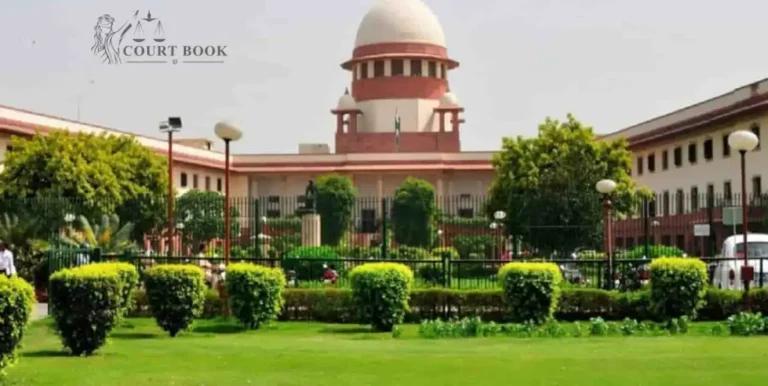The Supreme Court of India dismissed the appeal filed by UCO Bank, ruling that a dismissed employee who had completed over ten years of service is entitled to superannuation benefits. The bench, comprising Justices Abhay S. Oka and Ujjal Bhuyan, upheld the Punjab & Haryana High Court’s order directing the bank to grant pensionary benefits to the respondent-employee, who was removed from service due to misconduct.
Case Background
- In 1998, the respondent was accused of assaulting a bank officer and was dismissed from service following an inquiry in 1999.
- In 2000, the appellate authority modified the penalty from dismissal to removal with terminal benefits. This decision remained unchallenged by UCO Bank and attained finality.
- In 2004, the Labour Court reduced the penalty further to stoppage of increments and ordered reinstatement with 75% back wages.
- In 2009, the High Court set aside the Labour Court’s award, reinstating the removal with terminal benefits.
- In 2010, the respondent opted for pension under the Bipartite Settlement.
- Later, the High Court directed the bank to grant pensionary benefits, relying on the Supreme Court's decision in Bank of Baroda v. S.K. Kool (2014) 2 SCC 715.
Read also: SC Collegium Proposes Elevation of Eight Judicial Officers to Allahabad High Court Bench
The main issue before the Supreme Court was:
- Does Regulation 22 of the UCO Bank Pension Regulations override the Bipartite Settlement, which has statutory backing under the Industrial Disputes Act?
- The appellant-bank opposed pension benefits under Regulation 22 of UCO Bank Pension Regulations, which states that an employee who is removed from service is not entitled to a pension.
- The Bipartite Agreement, dated 19.10.1966, was a settlement between the Indian Banks’ Association and the Banks’ Workmen Union under the Industrial Disputes Act, 1947.
- Clause 6(b) of the Bipartite Agreement clearly states: “An employee who is found guilty of gross misconduct may be removed from service but would be provided with superannuation benefits which would otherwise be due to him.”
- Since the Bipartite Agreement has statutory backing, it is binding on the bank.
Read also: Supreme Court Reserves Verdict on BRS MLAs' Defection Case: Delay by Speaker Under Scrutiny
The Supreme Court rejected UCO Bank’s plea and ruled that Regulation 22 cannot override the Bipartite Settlement, which has statutory backing under the Industrial Disputes Act.
- The Court relied on S.K. Kool’s case, where it was held that if an employee completes 10+ years of service, he is entitled to pension, even if dismissed for misconduct.
- The Court addressed UCO Bank’s argument that S.K. Kool’s ruling was factually different, stating: “The decision in S.K. Kool (supra) was rendered in a different factual context. The employee in the said case had opted for pension before the penalty of removal from service was imposed on him. In the present case, respondent never opted for pension. Therefore, S.K. Kool (supra) is clearly distinguishable in so far as facts and circumstances of the present case are concerned.”
- However, the Single Judge and the Division Bench had already examined the facts and ruled in favor of the employee, noting: “The respondent had submitted his option for pension on 05.10.2010. The appellate authority had specifically held that respondent would be entitled to receive terminal benefits for the period of service he had rendered. This order of the appellate authority has attained finality. Therefore, the respondent was entitled to receive pension.”
- The Supreme Court reaffirmed that the decision in S.K. Kool is binding and found no reason to interfere with the concurrent rulings of the Single Judge and Division Bench.
- The Supreme Court dismissed the appeal and upheld the High Court’s order directing UCO Bank to grant pension benefits to the employee.
In terms of the aforesaid, the Court dismissed the appeal.
Case Title: UCO BANK & ANR. VERSUS VIJAY KUMAR HANDA
Appearances:
For Petitioner(s) Ms. Vibha Dutta Makhija, Sr. Adv. Mr. Sarfaraz Khan, Adv. Mr. Kausar Raza Faridi, AOR Mr. Naved Ahmed, Adv. Mr. Mirza Amir Beg, Adv. Mr. Shahbaaz Jameel, Adv. Mr. Abdul Wahid, Adv.
For Respondent(s) Mr. Tripurari Ray, Adv. Mr. Balwant Singh Billowria, Adv. Mr. Anirudh Ray, Adv. Mr. Vivekanand Singh,














